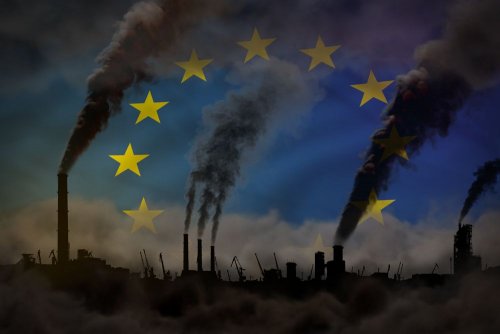An analysis by the Center for Energy and Clean Air Research (Crea) showed that in 2023, EU carbon emissions from fossil fuel combustion decreased by 8% compared to 2022 and reached the level of the 1960s.
Such a reduction in emissions is the sharpest since the quarantine restrictions during the Covid-19 pandemic, but the pace of global emissions reductions is not enough to limit climate change, The Guardian reports.
Crea emphasized that such emissions reductions show the possibility of economic growth while fighting climate change.
The analysis showed that more than half of the emissions reduction came from renewable sources, as well as hydropower and nuclear power plants that suffered from drought and repairs in 2022. In addition, high natural gas prices reduced emissions from industry, as some companies became more energy efficient and others reduced production.
It is noted that the analysis did not take into account emissions from agriculture, chemicals, cement, and methane emissions.
"The reduction of emissions by 8% should be celebrated," he said Crea analyst Isaac Levy. – But more needs to be done to wean the EU off fossil fuels, reduce dependence on oil powers like Russia, and at the same time make the world a better place for the next generation."
The article emphasized that the EU bears the greatest responsibility for warming the planet and intensifying extreme weather conditions. To limit global warming, the bloc plans to cut its emissions by 55% by 2030, from 1990 levels, and zero emissions by 2050.
"In recent years, the EU has made great progress in strengthening its climate policy," said Professor Ottmar Edenhofer, chairman of the advisory board. EU on climate issues . "But achieving climate neutrality by 2050 is a race against time, and we cannot afford to fall back."
Earlier, EcoPolitic wrote, that a study by the Agora Energiewende think tank showed that Germany's emissions in 2023 decreased to 673 million tons (the government's annual target is 722 million tons of CO2) and reached the lowest level in the last 70 years.
As EcoPolitic previously reported, in the first nine months of 2023, France reduced greenhouse gas emissions by 4.6% compared to the same period in 2022.





